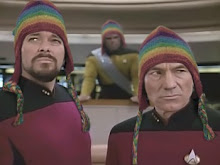Theodore R. Sizer as we know was the founder of the coalition of essential schools of which we are members along with over 600 other school across the country and internationally. He believed that if students were allowed to more freely use their mind then they could develop more intellectually. He thought that by giving us minor structure that we would be able to grow beyond what we could have if we had stuck to the structure. He thought that we were like a plant, if you keep putting us in bigger pots we can grow more because if we were a big plant in a little pot then we can only grow as much as the pot will let us. He wanted to leave room for change and because he believed that with change came growth. E.D. Hirsch, on the other hand believed that by learning facts about American and other countries that we will be more prone to success because we know what is necessary and that is what will help us more when we apply for colleges of jobs. In the books he published he stated that every grade level should have certain lesson plans that should be followed more explicitly and then after that the rate of success will be much greater.
I believe that freedom is necessary for change and that you can't progress without change. The problem with that is that progress and change are things that need to be kept in check. You cannot allow a plant to grow freely and expect it to stay within certain boundaries. The idea of untethered change can be scary to many because it is unpredictable and has the ability to get dangerous. If total and complete freedom is offered to today's youth then what control does the powers at be have over us? How can they possibly control us and make us do what they want. What i would do if i had to run a school, as predictable as it may be, i would mix the ideas of Sizer and Hirsch. I think that freedom is necessary to grow and learn but there needs to be some sort of root that can be built off of. It would great if people could hold an intelligent conversation and interject their own ideas, but they need to be able to understand what is being talked about. The Bill of Rights is something that should be taught in schools. We need to know the history of the planet. I think that if there could be a mix of Political sciences, World History, and Social studies in public schools, then there would be a great increase in the people produced by that education system.
E.D. Hirsch said: "Such is the case for the fundamental, inescapable importance of substantial, broad background knowledge for reading comprehension (and for performing well on reading comprehension tests). But agreement on this begs the next question: Knowledge of what? What knowledge should the schools be responsible for teaching to all kids? I believe that part of the answer is quite straightforward, and I hope uncontroversial—and to teach it ought to take about 40-60 percent of curricular time. " (Building Knowledge-http://archive.aft.org/pubs-reports/american_educator/issues/spring06/hirsch.htm). He wants the students of tomorrows youth be able to hold a conversation. It isn't necessarily a bad thing. He bases his knowledge off of comprehension tests which isn't right so i think that his ideas might be skewed from the beginning but he does have some valid points especially with the fact that we need more background knowledge. Ted Sizer said : "Few of the young soldiers who served under him had completed high school, but when treated democratically, as members of a cohesive group, they learned new skills readily, he found.“Whatever troops you got had to deliver,” Professor Sizer told Phi Delta Kappan magazine in 1996. “If one person didn’t do it, he put everybody’s life at stake. That made a deep impression. There was no tracking in the Army, just the beliefs that somehow these young men had to be trained and had to be reliable and that all soldiers can learn.”(Obituary Works-http://www.nytimes.com/2009/10/23/education/23sizer.html?_r=2&pagewanted=all). Again just like Hirsch, Sizer recounts ideas from personal experiences and plans that to work accordingly with all people. Both of these people didn't ever investigate the other side, because if they did then it wouldn't be a problem right now because they would see how they could use each other to cover the flaws in their own ideas. But that is because they didn't take advice from each other, at least thats what i think.

No comments:
Post a Comment